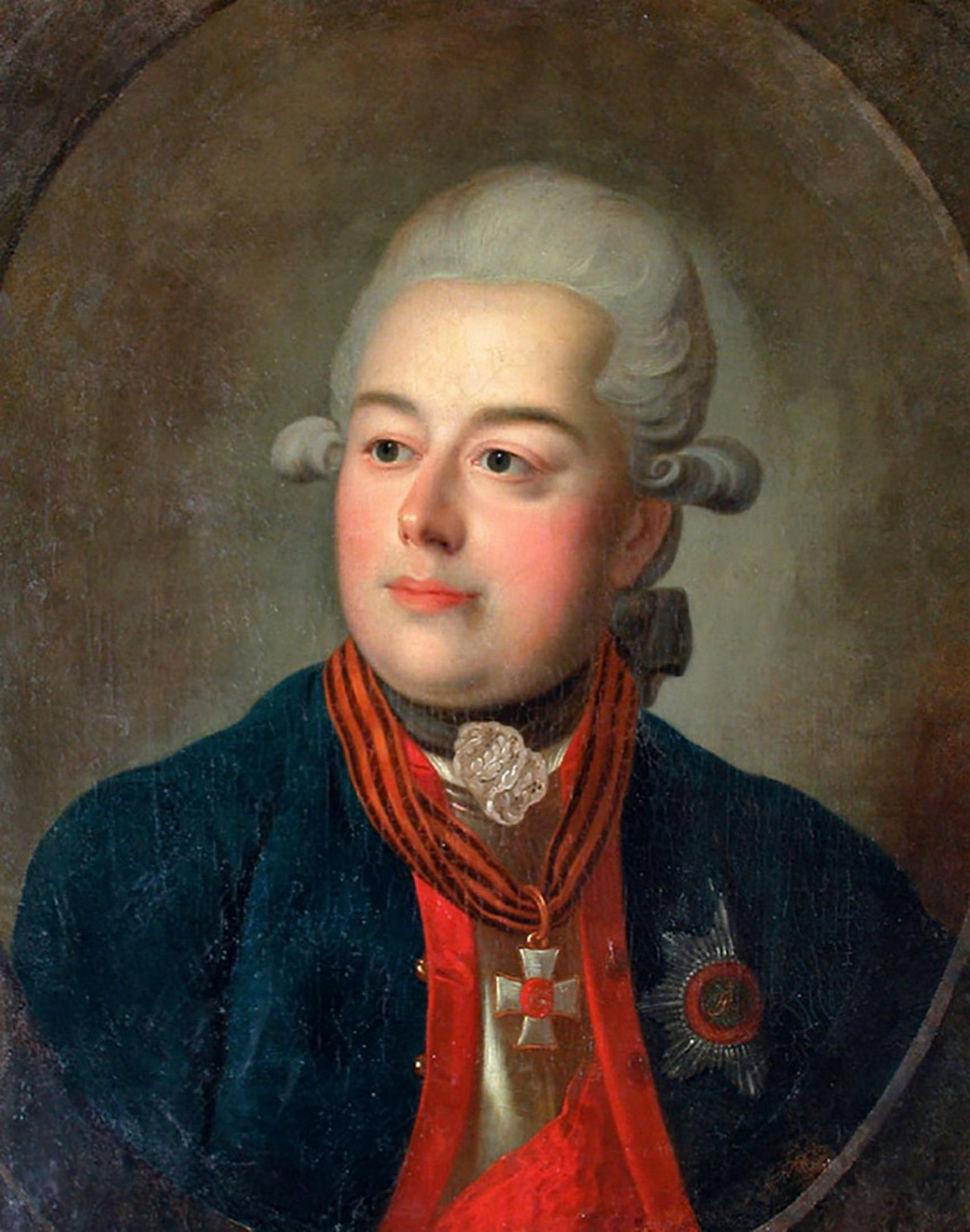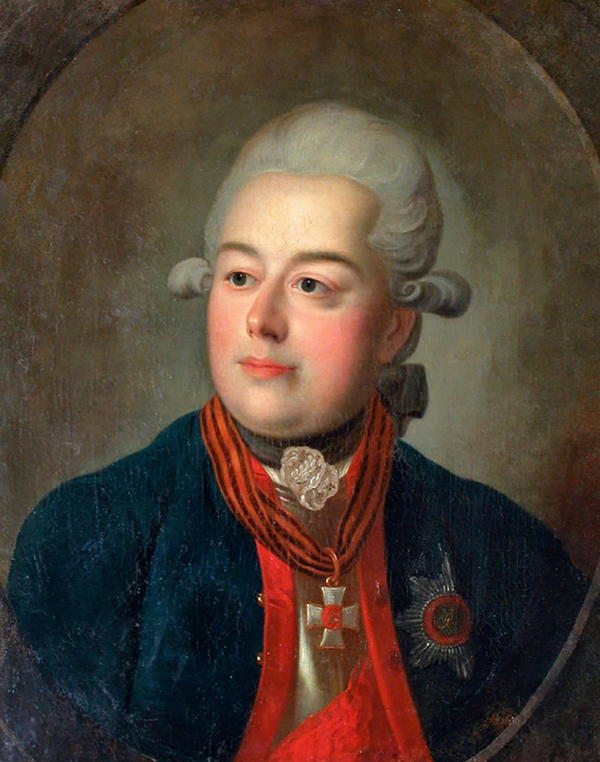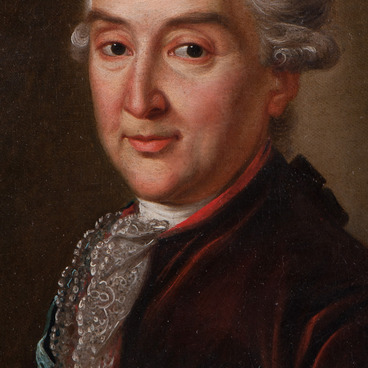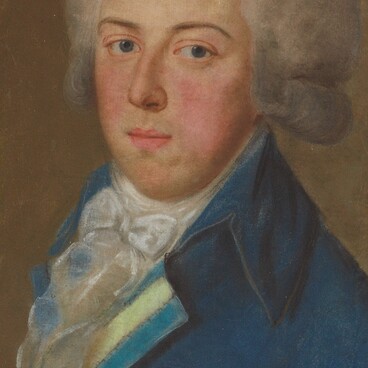Lieutenant General, Prince Peter Mikhailovich Golitsyn (1738-1775) was one of the leaders of the suppression of the Pugachev uprising. He was the son of Admiral General Mikhail Mikhailovich Golitsyn Jr. and Tatyana Kirillovna, nee Naryshkina.
The military biography of Peter Mikhailovich is quite rich. He began serving in the guard in 1757, took part in The Seven Years' War, heroically proved himself in battles, and participated in the capture of Berlin. In 1762, he was appointed to Emperor Peter III as an adjutant, but during a coup d’etat he joined the camp of Catherine II’s supporters, for which he received the rank of colonel. A year later, Golitsyn was appointed commander of the St. Petersburg Carabinieri Regiment. During the war with Turkey, he distinguished himself in the capture of Khotin. In 1770 he went to St. Petersburg again, where he became the commander of the Nevsky infantry regiment. In the 1770s, he won several victories over the Poles, participated in the capture of Krakow. In 1770 he was promoted to Major General.
The battles during the suppression of the Pugachev uprising in 1773-1775 can be considered as one of the most important point in Peter Golitsyn’s career.
In November 1773, by decree of the Military Collegium, he, together with Major General Pavel Dmitrievich Mansurov and led by General-in-Chief Alexander Ilyich Bibikov, was sent to suppress the Pugachev uprising in the Orenburg province. The troops of Golitsyn and Mansurov inflicted a heavy defeat on the troops of Pugachev in the battle on March 22, 1774 at the Tatishchev Fortress. The 30-thousandth army of rebels was defeated, and all the artillery of the rebels was captured. After the suppression of the uprising and the arrest of Pugachev, Golitsyn heard from the prisoner in his address: “Your lordship is a brave general. You were the first to take me to my knees at Tatishchev”s”.
After winning this battle, Golitsyn continued his march to Orenburg, and struck a flattened Pugachev once again, who, with the remnants of his forces, fled beyond the bend of the Belaya River to the South Ural factories. But Golitsyn’s troops did not follow him and stopped in Orenburg for almost three months. After the death of Bibikov, Lieutenant General Fyodor Fedorovich Shcherbatov was appointed to the post of commander of the troops, which angered Golitsyn, because he believed that he himself was suitable for this post. This adversely affected the dynamic. During the delay, Pugachev managed to gather a new army, with which he first set out on a campaign in the South Urals, and then moved to Kazan. He managed to take possession of the city, albeit for only one day.
In August 1774, the Major General took part in carrying out punitive actions against the rebels in the right-bank districts of the Volga region, and at the beginning of September he was sent to Yaik to prevent the possibility of a breakthrough by Pugachev with the people who remained with him on the Irgiz.
In 1775 Pyotr Golitsyn was promoted to lieutenant general for his services, and was also awarded the Order of St. Alexander Nevsky and received 2000 serfs. However, he did not have time to enjoy his awards, since he was killed in a duel in the same year.
The military biography of Peter Mikhailovich is quite rich. He began serving in the guard in 1757, took part in The Seven Years' War, heroically proved himself in battles, and participated in the capture of Berlin. In 1762, he was appointed to Emperor Peter III as an adjutant, but during a coup d’etat he joined the camp of Catherine II’s supporters, for which he received the rank of colonel. A year later, Golitsyn was appointed commander of the St. Petersburg Carabinieri Regiment. During the war with Turkey, he distinguished himself in the capture of Khotin. In 1770 he went to St. Petersburg again, where he became the commander of the Nevsky infantry regiment. In the 1770s, he won several victories over the Poles, participated in the capture of Krakow. In 1770 he was promoted to Major General.
The battles during the suppression of the Pugachev uprising in 1773-1775 can be considered as one of the most important point in Peter Golitsyn’s career.
In November 1773, by decree of the Military Collegium, he, together with Major General Pavel Dmitrievich Mansurov and led by General-in-Chief Alexander Ilyich Bibikov, was sent to suppress the Pugachev uprising in the Orenburg province. The troops of Golitsyn and Mansurov inflicted a heavy defeat on the troops of Pugachev in the battle on March 22, 1774 at the Tatishchev Fortress. The 30-thousandth army of rebels was defeated, and all the artillery of the rebels was captured. After the suppression of the uprising and the arrest of Pugachev, Golitsyn heard from the prisoner in his address: “Your lordship is a brave general. You were the first to take me to my knees at Tatishchev”s”.
After winning this battle, Golitsyn continued his march to Orenburg, and struck a flattened Pugachev once again, who, with the remnants of his forces, fled beyond the bend of the Belaya River to the South Ural factories. But Golitsyn’s troops did not follow him and stopped in Orenburg for almost three months. After the death of Bibikov, Lieutenant General Fyodor Fedorovich Shcherbatov was appointed to the post of commander of the troops, which angered Golitsyn, because he believed that he himself was suitable for this post. This adversely affected the dynamic. During the delay, Pugachev managed to gather a new army, with which he first set out on a campaign in the South Urals, and then moved to Kazan. He managed to take possession of the city, albeit for only one day.
In August 1774, the Major General took part in carrying out punitive actions against the rebels in the right-bank districts of the Volga region, and at the beginning of September he was sent to Yaik to prevent the possibility of a breakthrough by Pugachev with the people who remained with him on the Irgiz.
In 1775 Pyotr Golitsyn was promoted to lieutenant general for his services, and was also awarded the Order of St. Alexander Nevsky and received 2000 serfs. However, he did not have time to enjoy his awards, since he was killed in a duel in the same year.



